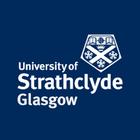The MSc in Health History is a research-led postgraduate programme which seeks to introduce students to a range of issues, controversies, debates, and specialist topics in the history of health and medicine. It provides specialist modules, taught by experts in the field; a sources and methods module which engages with both practical and intellectual issues in the history of medicine and of health and healthcare; and the opportunity to carry out an extended piece of original historical research and writing in the form of the dissertation. Students have the opportunity to explore a variety of themes such as:the development of psychiatry since the 19th centuryunderstandings of meat-eating and vegetarianismthe history of gender, sexuality and healththe rise of regulation for drugs and medicinesthe role of film, video and television in the production, communication and contestation of medical and health-related knowledgehow nutrition has been and continues to be one of the most controversial areas of health and medicineoral history theory and research practicesthe role of medicine in the emergence of ‘modern’ forms of warfarethe relationship between heritage, health and tourismthe often-vexed relationship between medicine, the public, and the statehow the media presents and frames health behaviours and its impact on media consumersThe MSc Health History is organised around the expertise of fifteen Strathclyde-based members of the Centre for the Social History of Health and Healthcare (CSHHH) Glasgow. The CSHHH is a collaboration between Strathclyde and Glasgow Caledonian University and Scotland’s largest centre for the history of health and medicine. The research-led teaching on the MSc in Health History focusses on the histories of drugs and intoxicants, medicine and warfare, children’s health, food and nutrition, gender and health, mental health, disability, health and the environment and patient experiences of health and illness.What you’ll studyIn your first semester, you will take our core module, Research Skills, Sources and Methods for Historians, as well as two specialist modules of your choosing. Our core module equips you with the skills you need to conduct your own research as well as grounding you in the different methodologies and approaches to history. In your second semester, you will take the core Dissertation Preparation module and an additional two specialist modules of your choosing. Every year we offer a variety of modules (see our list of ‘optional classes’ further down this page). You will also conduct your own extended piece of original historical research - a 15,000-word dissertation - with the support of an expert supervisor.






